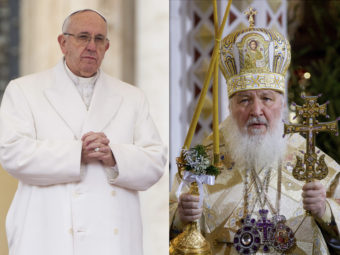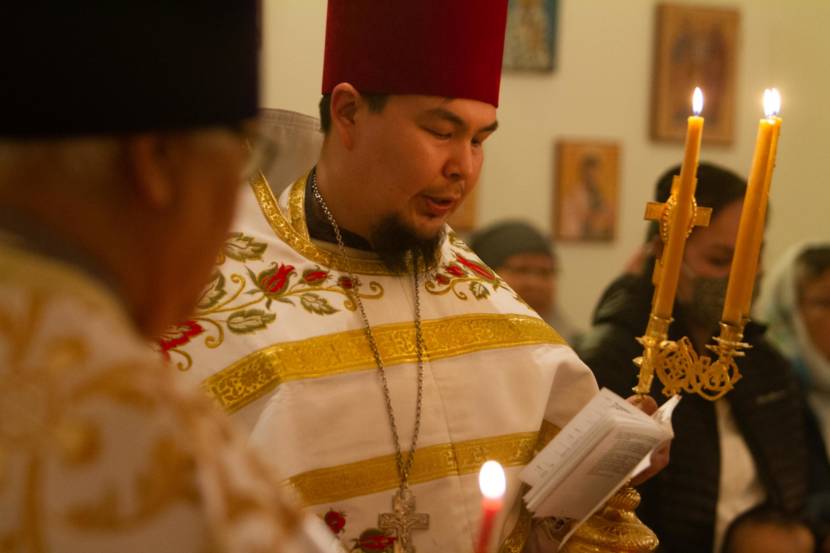
Over the weekend, Orthodox Christians in Bethel celebrated their most important religious holiday: Easter, or Pascha. It’s the first major holiday the congregation has gathered together for in nearly a year and a half.
It’s dark inside the church, as dark as it gets by midnight in May in Western Alaska. Parishioners wait in silence for the service to begin. The shine of the golden icons lining the church walls is barely perceptible in the navy light.
Sunday night was Pascha, or Orthodox Easter. For Orthodox Christians, it commemorates Jesus Christ’s resurrection from the tomb, three days after he was crucified, died, and was buried. For Christians, it’s this resurrection that proves Jesus is the son of God and the savior of humanity. Services last all week.
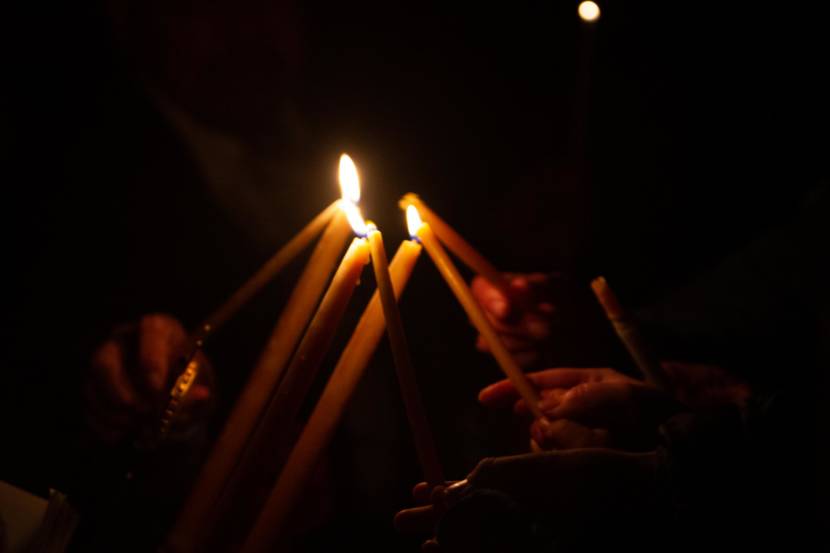
This Pascha is extra special. Last year, the congregation didn’t get to celebrate in person because of COVID-19. Choir member Allison Samuelson is relieved to be together again.
“Last year, I got on a webcast of one of the services, but it wasn’t the same sitting on my couch and watching from home,” said Samuelson.
Bethel’s eligible population is now 72% vaccinated against COVID-19, and things are opening back up. The Pascha joy, and joy of community, is palpable among parishioners.
“I’m so glad that we’re finally opening up the church, and more and more people are participating,” said Peter Suskuk.
Suskuk, who also sings in the choir, said Pascha is his favorite church holiday. He said that he wasn’t totally sold on getting the COVID-19 vaccine, but he got it so he could go back to church. When asked if it was worth it, he answered with a definitive yes.
Most attendees wear bright colors to symbolize the light that Jesus brought to earth. Suskuk is dressed in a silver brocade vest and matching pants.
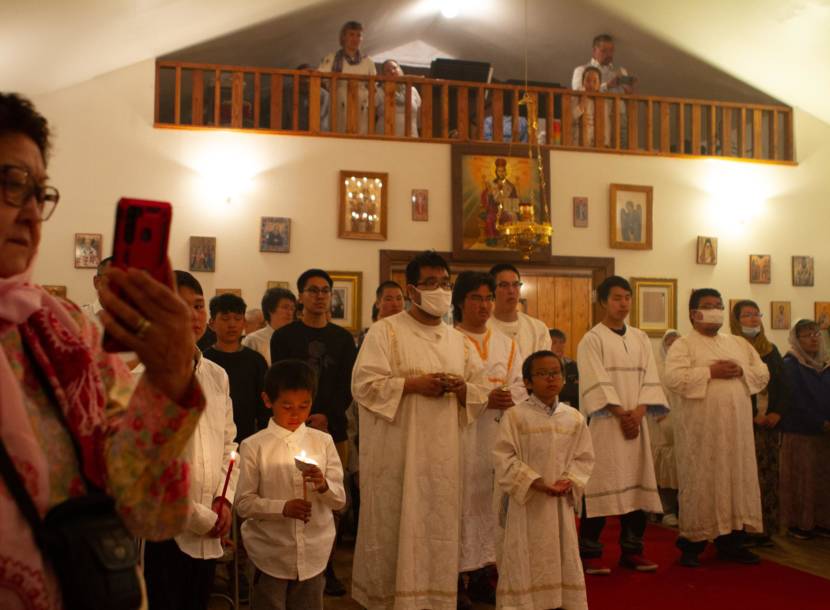
Most of the service is sung or chanted.
“There’s a dialogue between the clergy and the choir. So there’s that sort of dance,” said Fr. Michael Trefon, the parish priest.
He exudes joy, happy to have his parish back at full capacity, although this Pascha is also a time for remembrance of lives lost to the pandemic. He includes victims of COVID-19 and first responders in his prayers, which are chanted.
The service begins in the dark, but Michael soon emerges from the wooden vestry with a three-branched candle symbolizing the Christian holy trinity: the Father, the Son, and the Holy Spirit.
Using this candle, he lights the candles of each of the churchgoers, the white and gold of his Pascha robes glowing a little brighter with each additional small flame.
Then the priests begin a procession that circles around the outside of the church. It’s cold and damp tonight and the smell of burning incense mixes with the smell of rain.
Once the procession returns to the church door, the congregants reenter a building bathed in light. The darkness is gone. Inside, the people stand shoulder to shoulder.
For the parishioners, the light has returned to the earth in the form of Jesus, and the celebrations can now begin in earnest. They start with the call and response of a “Christ is risen” refrain that will last through the early morning.
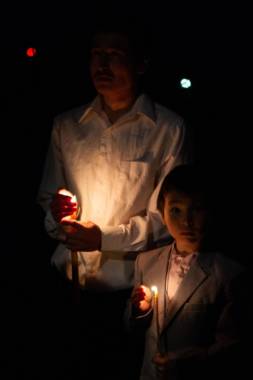
They say it in three languages: English (“Christ is risen!” “He is risen indeed!”); Old Church Slavonic, a language similar to Russian used mostly in the Orthodox Church (“Khristos voskrese!” “Voistinu voskrese!”); and of course, Yugtun.
Of the three languages, Yugtun gets perhaps the most enthusiastic response of all.
“Kristussaq Unguirtuq,” shouts the priest.
“Ilumun Unguirtuq!” answer the parishioners.
Illumun is not technically related to the English word “illuminate,” but doesn’t seem too far off when sung in a brightened room at midnight by faces warmed by candlelight. The service, which will end after 3 a.m., is just getting started.
Correction: An earlier version of this story had the incorrect day for Pascha. Orthodox Easter began Sunday, May 2 at midnight.

